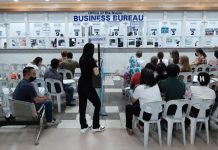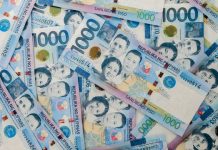The National Commission on Indigenous Peoples (NCIP) recently conducted in Tagum City, Davao del Norte a “Healing and Reconciliation” workshop, and pushed the discussion to operationalize the 11 Building Blocks in the Ancestral Domain.
In conducting the 2-day workshop entitled, “Healing, Reconciliation, and Operationalizing the 11 Building Blocks in the Ancestral Domain”, NCIP tied up with the Mindanao Indigenous Peoples Conference for Peace and Development (MIPCD), National Task Force to End Local Communist Armed Conflict (NTF-ELCAC) and the Philippine Army.
NCIP designed the activity to support the Whole-of-Government/Whole-of-Nation Approach (WoG/WoNA) principle; and in the process of healing, reconciliation, and operationalizing the 11 Building Blocks, NCIP intended to empower the former rebels (FRs), the IP Youth/IP enlisted personnel (EP) and the IP leaders.
NCIP Davao del Norte Provincial Officer Roger Lumbin revealed that the activity aimed to level the understanding of all stakeholders on the significance of the 11 Building Blocks operationalization; to develop core communicators to advocate the 11 Building Blocks; to create a support group for the 11 Building Blocks; to come up with plans and actionable items for ancestral domains; and to establish the significance of IP EP recruitment and deployment in ancestral domain and to finally get rid of communist terrorist group in the countryside.
NCIP press release said that NCIP Regional Director Mumar M. Mamukid viewed the set of 11 building blocks as a “powerful tool in uniting the indigenous peoples as they finally put an end to the injustices inflicted against them since time immemorial.”
He was referring to Registration and Accreditation of Indigenous Peoples Organization (IPO), CADT/CALT (certificate of ancestral domain title/ certificate of ancestral land title) Delineation Process; Establishment of ADMO; ADSDPP (Ancestral Domain Sustainable Development and Protection Plan) Formulation; IP Wealth Management-CRMDP (Community Resource Development and Management Plan)Formulation; Institutionalization of CP (certificate of precondition: FPIC (free prior informed consent) & EPR (exercising priority rights); Effective IPMR in the Local Legislative Bodies; Efficient & Enhanced MOA/MOU/MOC Formulation; Socio-Economic Activities with IP Cooperatives; Ancestral Domain Defense System.
Present during the workshop were the officers of Indigenous Political Structure (IPSs), Indigenous Peoples Mandatory Representatives (IPMRs), IP-EP, and IP Youth, the 1001st Infantry Brigade (Inf Bde), 25th Infantry Battalion (25IB), 28IB, 60IB, and the 10th Civil Military Operations (CMO) Battalion of the Philippine Army, and the Police Regional Office (PRO) XI.
In particular, present indigenous cultural communities are the Mansaka Indigenous Cultural Communities/Indigenous Peoples (ICCs/IPs) of the Municipalities of Maragusan, Nabunturan, Mawab, Maco, Mabini, and Pantukan; Kagan ICCs/IPs of the Municipalities of Maco, Mabini, and Pantukan; Dibabawon ICCs/IPs of Laak; Dibabawon-Mangguangan ICCs/IPs of Montevista; Mangguangan, Manobo, Dibabawon, and Mandaya ICCs/IPs of Monkayo; and Mansaka-Mandaya ICCs/IPs of the Municipalities of Compostela and New Bataan.
Other IP participants were from Davao del Norte. They were the Mandaya, Dibabawon, Kalagan, and Manguangan ICCs/IPs of Asuncion; Manguangan ICCs/IPs of New Corella; Dibabawon, Mandaya, and Manobo ICCs/IPs of San Isidro; Mandaya and Mansaka ICCs/IPs of Tagum City; Ata, Manobo, and Mandaya ICCs/IPs of Kapalong; and Kalagan ICCs/IPs of Panabo City.
There were participants also from Agusan del Sur: the Manobo ICCs/IPs of Sta. Josefa, Veruela, Loreto, and La Paz. (PIA XI/ Jeanevive Duron-Abangan with reports from NCIP)






